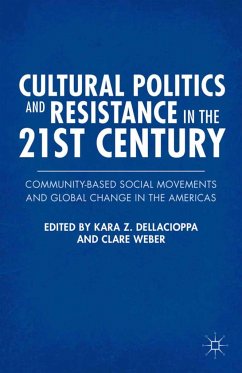By analyzing the cases present in this volume, the editors develop important steps towards a theory of social change that can adequately address the complex realities and intersectionality of identity (race, gender, class, sexuality, nationality) within and among these new movements.
'Zapatismo lives! That is the message brought to us from the authors and subjects of this book, who in a variety of inventive ways, on both sides of the Mexico-U.S. border, live life with dignity, joy, and confidence in the future. Here we find hip-hop artists, do-it-yourself communities, radical single moms, organized tomato pickers, Chicano student activists, outspoken teenage girls, undocumented immigrants, feminist peasants, striking teachers, indigenous corn farmers, and others lots of others - who walk with the Zapatistas, building community and sometimes winning victories but always creating love. Here we find voices speaking from the heart, from their real selves, about a world in which many worlds fit. We should all listen, and with care.' -John Foran
'This valuable compilation of fresh narratives offers an inside look at Mexican/US grassroots movements formed by women, peasants, indigenous people, and others inspired by zapatismo as a cultural and politicalpractice creating autonomous spaces as part of a movement of 'globalization from below.' In an era when the logic of the global market is presented as inexorable, this book is an important reminder of the power and agency of community-based organizing.' - Richard Stahler-Sholk, Professor, Department of Political Science, Eastern Michigan University
'This valuable compilation of fresh narratives offers an inside look at Mexican/US grassroots movements formed by women, peasants, indigenous people, and others inspired by zapatismo as a cultural and politicalpractice creating autonomous spaces as part of a movement of 'globalization from below.' In an era when the logic of the global market is presented as inexorable, this book is an important reminder of the power and agency of community-based organizing.' - Richard Stahler-Sholk, Professor, Department of Political Science, Eastern Michigan University








